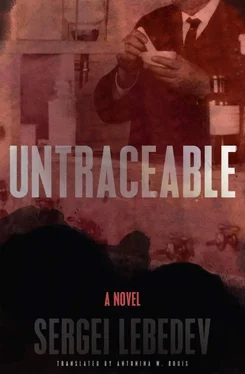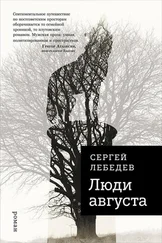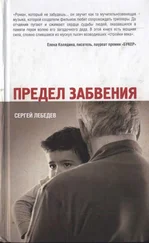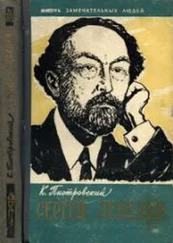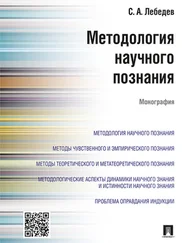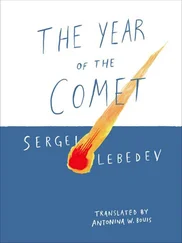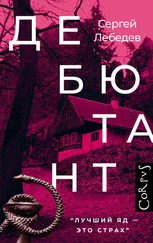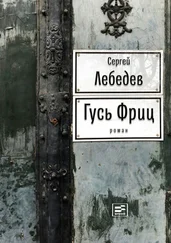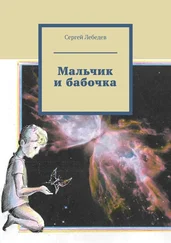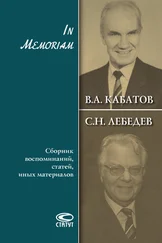Сергей Лебедев - Untraceable
Здесь есть возможность читать онлайн «Сергей Лебедев - Untraceable» весь текст электронной книги совершенно бесплатно (целиком полную версию без сокращений). В некоторых случаях можно слушать аудио, скачать через торрент в формате fb2 и присутствует краткое содержание. Город: New York, Год выпуска: 2021, ISBN: 2021, Издательство: New Vessel Press, Жанр: Современная проза, на английском языке. Описание произведения, (предисловие) а так же отзывы посетителей доступны на портале библиотеки ЛибКат.
- Название:Untraceable
- Автор:
- Издательство:New Vessel Press
- Жанр:
- Год:2021
- Город:New York
- ISBN:978-1-939931-90-0
- Рейтинг книги:3 / 5. Голосов: 1
-
Избранное:Добавить в избранное
- Отзывы:
-
Ваша оценка:
- 60
- 1
- 2
- 3
- 4
- 5
Untraceable: краткое содержание, описание и аннотация
Предлагаем к чтению аннотацию, описание, краткое содержание или предисловие (зависит от того, что написал сам автор книги «Untraceable»). Если вы не нашли необходимую информацию о книге — напишите в комментариях, мы постараемся отыскать её.
Untraceable — читать онлайн бесплатно полную книгу (весь текст) целиком
Ниже представлен текст книги, разбитый по страницам. Система сохранения места последней прочитанной страницы, позволяет с удобством читать онлайн бесплатно книгу «Untraceable», без необходимости каждый раз заново искать на чём Вы остановились. Поставьте закладку, и сможете в любой момент перейти на страницу, на которой закончили чтение.
Интервал:
Закладка:
They drove a long time, wandering on bad country roads. Kalitin looked around with unexpected interest; essentially, this was the first time he had seen the areas around the Island, the life of ordinary people outside the protected territory. The harvest was in, the fields were empty, with birds pecking at the last of the grain. Smoke rose from the chimneys in villages. Thousands of ordinary, sad sounds of life, forgotten by Kalitin, came from them. Lulled by the sounds, he daydreamed. He thought that they had just saved this sweet, peaceful life from an enemy threat, and that all their efforts ensured that stoves would burn, dogs would bark, well water would pour into empty buckets, and sleepy children would get ready for school.
He awoke near a village general store. Kalimullin stopped to get something for breakfast. The store had just opened, but there was a line outside, waiting for the bread truck to unload.
The lieutenant and his driver waved away the outraged women and went inside. The dusty and branch-whipped jeep was surrounded by curious boys. They should have been at school at that hour, but apparently the mothers had sent them for groceries or kept them with them, so that they could get bread and grain for two.
Kalitin felt uncomfortable. The pushy women, the noisy, grumbling line, the obnoxious kids annoyed him. The boys suddenly ran off and whispered to the adults, pointing at the car. Kalitin turned around and saw that the bouncing ride had loosened the tarp. The sun shone on the monkey’s dead face, yellow teeth bared in the pink mouth; shiny chrome-green flies crawled over the black fur.
Kalitin knew from the regular reports of the security department that the locals remembered many things. For instance, the Germans who had worked there before the war—some of the old men in the village had worked hauling water, others had been carpenters in the barracks. There were also rumors in the area that the bulldozers digging foundation pits for new buildings opened up holes filled with bones, both animal and human. Other rumors maintained that on the Island they made zombielike soldiers from dead criminals. The rumors were faithfully reported by informers.
Kalitin considered them amusing, a rudiment of the archaic peasant mind. He knew for certain that no bones had been dug up by bulldozers and no supersoldiers were created in the labs. Of course, he was surprised that despite all the secrecy measures, information still leaked out in a thin stream, as if these backward people had their own informers—animals, birds, dew, trees, grass. But that was the guards’ problem. He liked the image of the mysterious, terrifying citadel that wielded power over the region. It would be a shame if the locals knew nothing at all. It would remove some zest from his life.
But now Kalitin was wary. The people had crowded together, whispering. Trouble emanated from their poses, their faded clothing, weary faces, neutered figures that had lost male and female characteristics, retaining only the traces of heavy labor.
Faces, faces—Kalitin suddenly saw them in extreme proximity, screaming about the hidden pains of their bodies, stretched, squashed, asymmetrical, with hairs on warts, bushy eyebrows above dead eyes. The faces mocked him, danced around the car, peered into his pupils, bared yellow pointy teeth, like the monkey’s.
“That’s our work, you know,” Kazarnovsky said calmly, his tone cool.
Kalitin noticed what he meant.
At the end of the line were a mother and daughter. The girl had a bloated, lumpy figure, faded eyes with huge whites, thin grayish hair. Her heavy body was poised on thin, bird-like legs, toes without nails visible through the torn straps of her sandals.
“That’s just an illness,” Kalitin replied, trying to sound indifferent. “You’re tired.”
“Just an illness?” Kazarnovsky asked loudly, too loudly. “The girl’s around four. Four years ago they repaired the filtration system of the exhaust ventilation. Remember? They took off the old filters but did not replace them. The suppliers messed up the invoice. Zakharyevsky ordered the testing to continue. According to the prevailing winds, everything would be scattered above the river. We were inside. The exhaust fan blew everything away from us. That continued for two weeks. There’s your damned prevailing winds. Look. Look around you!”
If not for the night that drained his strength, Kalitin would have cut off his subordinate on the spot. But Kalitin sat there like a sack. Kazarnovsky had energy somehow, as if he was getting it from the people in line, the dead ape, the rising sun.
His words had turned the world inside out, revealing the hidden side. Kalitin no longer saw the pastoral landscape, the glowing light of life, the healthy flesh of the universe, but the dark spots of diseases, the ulcers of postponed death sprinkled on the foliage, in people’s bodies and faces, in the crooked letters of the GROCERY sign, in the potholed asphalt, in the cracked windowpanes of listing huts.
“I don’t know about the enemies, but we’re doing a very good job of destroying ourselves,” said Kazarnovsky. His voice trembled.
Kazarnovsky turned away and froze in a tense pose.
If he could, Kalitin would have killed him then. But Kalitin’s vision was still blurred by the dark spots of death: the whole world was mottled, as if eaten by black aphids.
Kalimullin and the driver came out of the store. The crowd calmed down at the sight of military uniforms. Everyone looked only at the head of the person in front. The lieutenant handed Kalitin half a loaf of freshly baked bread and a bottle of milk; Kalitin dove into the fragrant mass, swallowing without chewing and washing it down with milk. A rich stream dribbled into the collar of his checked shirt.
“What’s the matter with him?” Kalimullin asked directly, all distinctions erased by the hunt.
“He’s faded,” Kalitin replied. “Nerves shot.”
Kalimullin shook Kazarnovsky with unexpected ease—he must have come from a big family where he took care of the little ones, Kalitin thought enviously—and handed him the second half of the loaf and a bottle. Kazarnovsky started drinking and chewing. Obeying his lingering hatred, Kalitin threw out the still-warm crust onto the road; he did not want to share bread with the enemy. With a traitor.
Kalitin did not inform on him. It would have been unwise by his lights. First you inform voluntarily, then they ask you to do it. He did not like being in a dependent position.
Kalitin got rid of him swiftly, elegantly, by someone else’s wish. The Chernobyl nuclear power plant exploded, and a coded message came to the Island: send specialists to work in the contamination zone. Everyone in their lab, where they experimented with radioactivity, understood the risk. That was when the director of the institute selected Kazarnovsky, on Kalitin’s suggestion. He quoted the coded message demanding the most qualified specialists loyal to the Party. Immediate departure, the AN-24 turboprop was waiting at the airport. The aim and location of the trip could not be revealed to the family. Kazarnovsky stood up, round-shouldered, weary, and calmly thanked those gathered for their trust. He walked past the long counter, followed by dozens of eyes, met Kalitin’s stare, nodded briefly, almost imperceptibly, and went out the door.
The union head later sent someone to visit him in the radiology hospital; to bring flowers, fruit, some extra food. But while they were getting approval for the visit and organizing it, Kazarnovsky died.
He should not have been exposed to a fatal dose; he knew all the norms and calculations. He volunteered to save others and spent too much time in the “hot zone.” It took time to get him to the hospital, for the doctors to attend to him.
Читать дальшеИнтервал:
Закладка:
Похожие книги на «Untraceable»
Представляем Вашему вниманию похожие книги на «Untraceable» списком для выбора. Мы отобрали схожую по названию и смыслу литературу в надежде предоставить читателям больше вариантов отыскать новые, интересные, ещё непрочитанные произведения.
Обсуждение, отзывы о книге «Untraceable» и просто собственные мнения читателей. Оставьте ваши комментарии, напишите, что Вы думаете о произведении, его смысле или главных героях. Укажите что конкретно понравилось, а что нет, и почему Вы так считаете.
